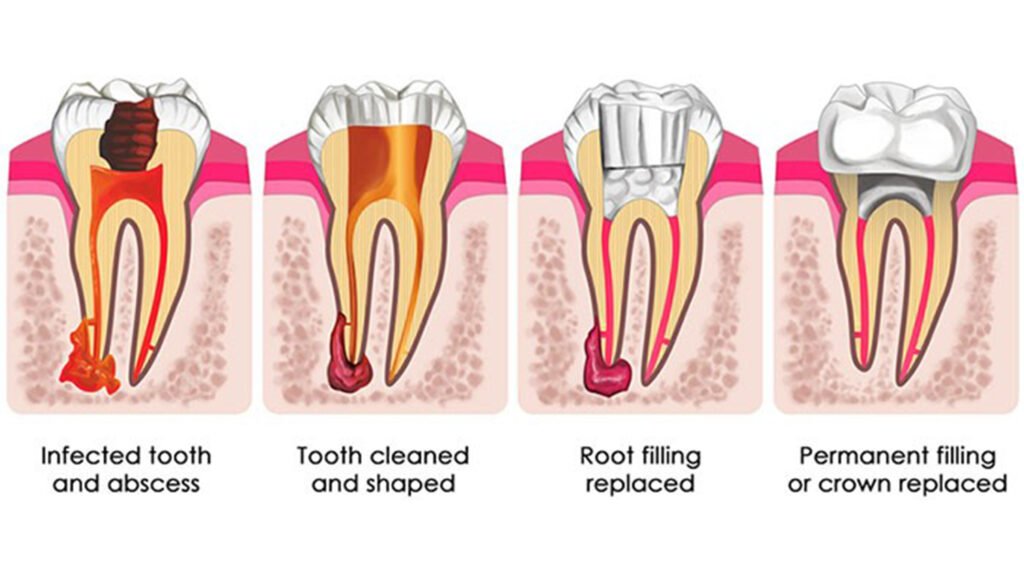Timely root canal treatment plays a critical role in preserving dental health and preventing further complications. The repercussions of delaying this necessary procedure can be far-reaching, leading to increased discomfort, potential abscess formation, and jeopardizing the stability of the affected tooth. The risks associated with procrastinating root canal treatment extend beyond mere inconvenience, posing severe threats to oral health and overall well-being. Understanding the implications of timely intervention versus delay is paramount in making informed decisions regarding dental care.
Importance of Timely Root Canal Treatment
Timely root canal treatment is imperative in preventing the spread of infection, preserving the affected tooth, and maintaining overall oral health. When a tooth is infected or damaged, the pulp inside can become inflamed or infected, leading to severe pain and potential abscess formation.
A root canal procedure involves removing the infected pulp, cleaning the inside of the tooth, and sealing it to prevent further infection at the Best Dental Care Clinic In Banjara Hills. By addressing the issue promptly, the spread of infection to surrounding teeth, gums, or even the jawbone can be halted.
Furthermore, timely root canal treatment helps to preserve the natural tooth structure. Without intervention, the infection can progress, weakening the tooth and potentially leading to its loss. By saving the natural tooth through a root canal, patients can maintain their oral function, aesthetics, and avoid the need for more extensive treatments like dental implants or bridges.
Risks of Delaying Root Canal
Delaying root canal treatment poses significant risks to both oral health and overall wellbeing. When a root canal is delayed, the infection within the tooth continues to spread, causing increased pain, swelling, and potential abscess formation.
As the infection progresses, it can lead to further complications such as bone loss around the tooth, which may compromise its stability and potentially result in tooth loss, making Dental Implants In Banjara Hills a necessary option.
Moreover, untreated infections can spread beyond the tooth and into the surrounding tissues, leading to more severe infections that may require stronger courses of antibiotics or even surgical intervention.
Delaying root canal treatment not only allows the infection to worsen but also increases the likelihood of experiencing complications during the eventual treatment, such as reduced effectiveness of local anesthesia or difficulty in achieving complete removal of the infection.
Effects of Infection Progression
As the infection within a tooth progresses, the effects of its spread can have far-reaching consequences on both oral and overall health, highlighting the importance of seeking the Best Tooth Cavities Treatment In Banjara Hills. Initially, the infection may cause persistent tooth pain and sensitivity to hot and cold temperatures. As it advances, the surrounding gum tissue can become inflamed, leading to swelling, tenderness, and the formation of a gum abscess. If left untreated, the infection can spread beyond the tooth and gums, potentially affecting the jawbone and neighboring teeth.
Furthermore, the bacteria causing the infection can enter the bloodstream, posing a risk of systemic complications. Research has linked untreated dental infections to conditions such as endocarditis, a serious infection of the heart valves, and pneumonia.
Moreover, chronic dental infections have been associated with an increased risk of developing certain systemic diseases like diabetes and cardiovascular disease.
Tooth Damage From Prolonged Wait
Prolonged delay in seeking treatment for an infected tooth can result in significant damage to the structure and integrity of the affected tooth. As the infection progresses, it can penetrate deeper into the tooth, reaching the sensitive dental pulp where the nerves and blood vessels are located. This can lead to increased pain, swelling, and potential abscess formation. The longer the infection is left untreated, the more extensive the damage becomes. Decay and infection can weaken the tooth, causing it to become brittle and prone to fractures.
Additionally, the surrounding bone that supports the tooth may also be affected by the prolonged presence of infection. Bone loss can occur, further compromising the stability of the tooth. In some cases, the damage may become so severe that the tooth cannot be saved, requiring extraction instead of a root canal procedure.
Therefore, timely intervention is crucial to prevent irreversible harm and preserve the natural tooth structure.
Complications Leading to Tooth Loss
Untreated infections in the tooth can lead to a cascade of complications that may ultimately result in the loss of the affected tooth. When a dental infection is left unaddressed, it can progress from the pulp of the tooth into the surrounding tissues, leading to a condition known as a dental abscess. This abscess can cause severe pain, swelling, and even the formation of pus pockets.
If the infection continues to spread, it can compromise the bone that supports the tooth, resulting in bone loss and weakening of the tooth's foundation.
Furthermore, untreated infections can lead to periodontal disease, which affects the gums and bone supporting the teeth. As the infection progresses, it can cause the gums to recede, exposing the roots of the teeth and making them more susceptible to decay and loosening.
In severe cases, the infection can lead to irreversible damage, necessitating the extraction of the affected tooth to prevent the spread of infection to neighboring teeth. Therefore, timely intervention through root canal treatment is crucial in preventing these complications and preserving the natural tooth structure.
Benefits of Early Intervention
Early intervention through timely root canal treatment offers significant advantages in preventing the progression of dental infections and associated complications. By addressing the root cause of infection promptly, patients can avoid the risk of the infection spreading to surrounding teeth or even reaching the jawbone, which could lead to more severe health issues. Moreover, early intervention can alleviate the discomfort and pain caused by dental infections, enhancing the patient's quality of life.
Another benefit of timely root canal treatment is the preservation of the natural tooth. By removing the infected pulp and sealing the tooth, root canal therapy can save a tooth that would otherwise require extraction. This not only maintains the aesthetics of the smile but also helps in preserving the functionality of the bite and preventing further tooth loss.
Furthermore, addressing dental issues promptly can help patients avoid more extensive and costly treatments in the future. By tackling the problem early on, individuals can potentially save time, money, and unnecessary discomfort associated with advanced dental procedures.
Timely root canal treatment is crucial to prevent the spread of infection, preserve the affected tooth, and maintain overall oral health. Delaying root canal treatment can lead to increased pain, swelling, abscess formation, compromised tooth stability, and potential spread of infection to surrounding tissues.
Addressing root canal issues promptly is essential to avoid further complications and preserve the natural tooth structure.



